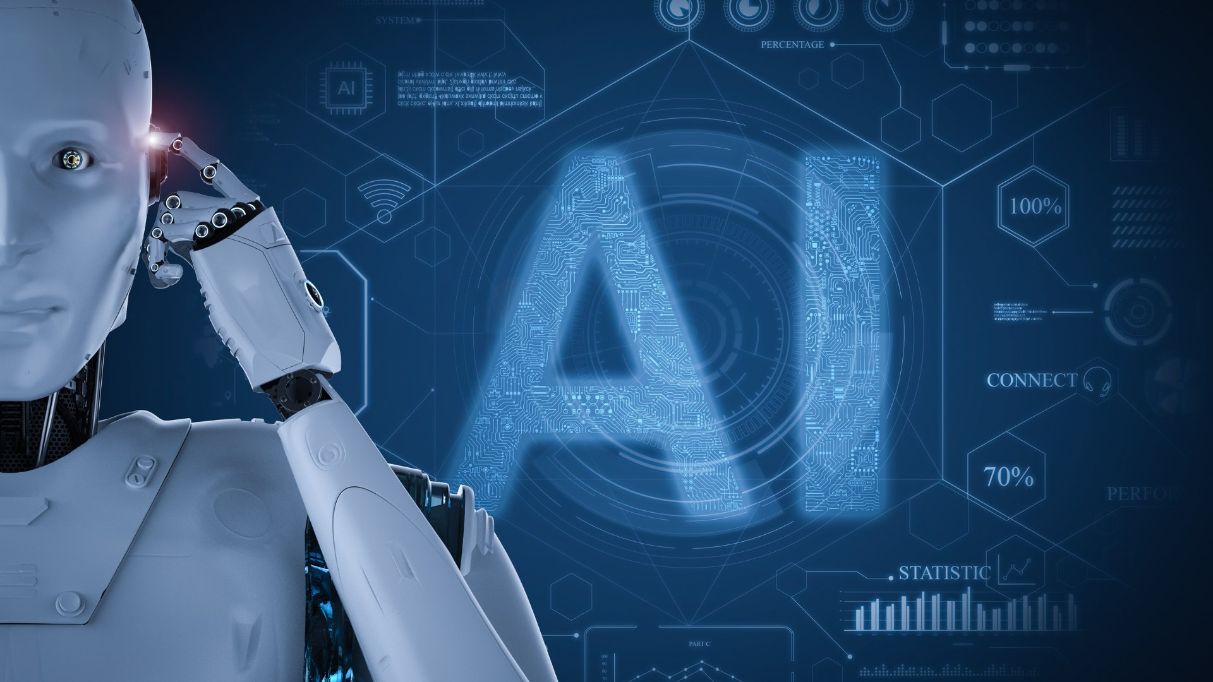
Artificial intelligence (AI) and intellectual property (IP): Should AI be recognized as an inventor on patents?
By: Michael Antone, U.S. Registered Patent Attorney, Nemphos Braue
As seen in the Baltimore Business Journal’s Maryland Inno
As the field of artificial intelligence (AI) continues to develop at a rapid pace, there is a growing debate about whether AI should be recognized as an inventor on patents. Currently, the legal framework for patenting new inventions requires that the inventor be a natural person. However, some argue that as AI systems become increasingly sophisticated and capable of generating novel ideas and solutions, they should be granted the same recognition and protection afforded to human inventors. In this article, we will explore the pros and cons of allowing AI to be recognized as inventors on patents.
Pros
Encourages innovation: Allowing AI to be recognized as an inventor on a patent could encourage more investment in AI research and development, as companies and individuals would be more incentivized to develop AI systems that can generate novel and useful inventions.
Provides legal protection: By granting AI inventorship rights, the intellectual property rights for an invention generated by an AI system would be legally protected. This would help prevent unauthorized use or infringement of the invention and encourage further development and investment in AI research.
Promotes transparency: Recognizing AI as an inventor could help promote transparency and accountability in the development of AI systems, as it would force companies and individuals to disclose the algorithms and processes used to generate the invention.
Cons
Undermines human creativity: Granting AI inventorship rights could be seen as an affront to human creativity and ingenuity, as it implies that machines are capable of generating truly novel and unique ideas without human intervention.
Raises legal questions: There are currently no legal frameworks in place to recognize AI as an inventor, which could lead to complex legal battles and uncertainty around ownership and intellectual property rights.
Raises ethical concerns: Recognizing AI as an inventor could raise ethical concerns around the role of machines in society and the potential for AI systems to replace human labor and creativity.
Conclusion:
The question of whether AI should be recognized as an inventor on patents is a complex and multifaceted issue. While there are certainly potential benefits to recognizing AI inventorship rights, there are also valid concerns about the impact of such a decision on human creativity and the legal and ethical implications of treating machines as inventors. As AI technology continues to develop and evolve, it is likely that this debate will become increasingly important, and it will be up to policymakers, legal experts, and the general public to weigh the pros and cons and determine the best path forward.
AI’s contribution to this article
With the assistance of my daughter, Gianna Antone, a student at Towson University, the previous eight paragraphs were generated entirely by ChatGPT in response to requests to “Please prepare a one- page article discussing the pros and cons of allowing artificial intelligence to be an inventor on a patent.”
If the above content had been created by either of us humans, it may be copyrightable. Does the fact that the content was generated by an AI algorithm change the outcome of the copyright analysis? That is one of many AI-related questions being debated.
The AI-IP rights debate may not be settled for quite some time, so the more immediate question for business owners may be how to deal with this uncertainty in the interim. Generative AI tools, such as ChatGPT, can expand businesses’ ability to generate content, including artwork, and perhaps even inventions, that may be useful in their operations, particularly for entrepreneurs with tight budgets.
In view of the potential productivity gain, there is a clear incentive for a business to use AI tools. However, since the IP ownership landscape is unsettled, business owners will want to exercise caution in using AI tools when they want to control the inventions or content being generated, as governments may decide that businesses and individuals have no IP rights in AI-generated IP.
A U.S. registered patent attorney with more than 20 years of experience, Michael Antone serves as of counsel at Nemphos Braue, where he helps clients protect their most valuable intellectual property assets. He also has experience in corporate and business law, private equity and as an engineer.
How does (or will) AI impact your intellectual property? Have a question about patents, copyrights and trademarks, or need legal expertise for your startup? Our attorneys provide legal and business value for clients by fostering true strategic partnerships. Contact Nemphos Braue to learn more.
George Nemphos and Tim Braue started Nemphos Braue LLC in 2016, combining big firm expertise with the flexibility and creativity of a boutique practice. From venture capital and private equity to intellectual property, mergers and acquisitions and general corporate counsel, Nemphos Braue is a different kind of law firm.




